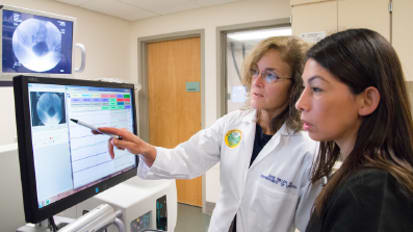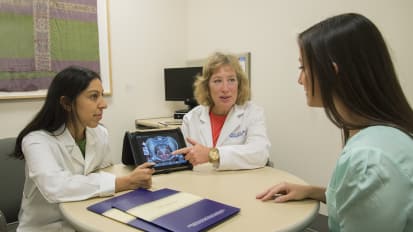- Provider Resource
- Home
- Browse Provider Resource
- Refer a patient
UW Medicine offers holistic healthcare services to women across the continuum from adolescence through late adulthood. UW Medicine provides wellness and preventive services as well as care for normal to high-risk pregnancies, and breast, gynecologic and pelvic health. Our experts care for women with complicated medical conditions (such as reproductive/infertility and gynecologic oncology) that may require minimally invasive procedures or comprehensive surgical care. In addition, UW Medicine is prepared to care for infants requiring special or intensive care services within our three Neonatal Intensive Care Units (NICUs). Our level 3 and level 4 NICUs provide the latest therapies for infants born preterm or those who require highly skilled care. Our physicians are researchers who are making medical discoveries that are improving the lives of women and infants throughout the world.
Videos
 Video
Video
Canaries in the Mine: Endocrine Disrupting Chemicals
Laura Sienas, MD, defines endocrine disrupting chemicals (EDCs) and shares common examples. She reviews the impact that EDCs have on women's health topics and ways that physicians can advocate for their patients and their community.
 Video
Video
Mentoring: If You Can't See Where You Are Going, Ask Someone Who Has Been There Before
Barbara Goff, MD, gives a presentation on the importance of mentorship, how to mentor, and how to seek out good mentorship.
 Video
Video
Infertility Management in Low Resource Settings
Christopher Herndon, MD, gives an overview of infertility and assisted reproductive technologies, then what can be done in a low resource setting.
 Video
Video
Support the Vaginal Apex: When the Roof Comes Falling Down
Anna Kirby, MD, presents to help us understand the anatomy of vaginal support and when and why apical suspensions are indicated
 Video
Video
From Brain to Bedside: How Neuroscience Informs Clinical Care for Patients with Obesity
Ellen Schur, MD, MS, links neuroscience to obesity and advises on how to approach clinical care for these patients.
 Video
Video
Hospital-Acquired Infections and the OB/GYN Patient
Paul Pottinger, MD, FIDSA, provides an update on the current situation with HAIs, SSI, Influenza, Legionella, MRSA, & C.difficile in cesarean sections and hysterectomy.
 Video
Video
Trauma-Informed Care for the Obstetrician-Gynecologist
Lauren Owens, MD, MPH, defines trauma and trauma-informed care, describes the prevalence of trauma among various populations, describes a trauma-informed approach to the pelvic exam and informs of a trauma-informed approach to labor and delivery.
 Video
Video
Prostate and Breast Cancer Issues in Screening and Management
Jonathan Wright, MD discusses the similarities between Prostate and Breast Cancer, including screening controversies & USPSTF, treatment paradigms & active surveillance for low risk disease, and BRCA mutations & how they are important for prostate cancer.
 Video
Video
Post-Treatment Gyn Cancer Survivorship Care: Perceptions, Approach, and the Future
Jovana Martin, MD, MPH, reviews trends in increasing prevalence in cancer survivors. She also provides a review of surveillance methods for gynecological cancers and helps to understand the late effects of cancer treatment.
 Video
Video
Rebecca Taub, MD, MPH, provides an update on current governmental initiatives targeting women and reproductive rights. She describes several fast, easy and effective strategies for activism and resistance.
 Video
Video
Adolescent Health: Eating Disorders
Yolanda Evans, MD, MPH, talks about eating disorders, using cases to give examples of how to diagnose, identify signs and symptoms, complications and treatment approaches.
 Video
Video
Unsafe Abortion: Past, Present, and Future
Elizabeth Harrington, MD, describes the epidemiology of unsafe abortion in the global setting and explains how legal restrictions on abortion affect quality of care.
 Video
Video
Treating Symptoms of Menopause in Women with Gynecologic Cancer
Tiffany Beck, MD, MPH, gives a review of menopause and health in the well woman and how it overlaps with the cancer survivorship population.
 Video
Video
Urgency Urinary Incontinence: Evaluation and Management
Anna Kirby, MD, gives an overview to understand the initial evaluation of urinary incontinence, when to refer and the treatments for urgency urinary incontinence.
 Video
Video
Amies Oelschlager, MD, helps one understand the outcomes of dilation versus surgery, learn to assess for readiness and know how to teach dilation therapy and troubleshooting techniques.
 Video
Video
Is It Prime Time for Primary HPV Screening?
Connie Mao, MD, explains HPV screening and interim guidelines.
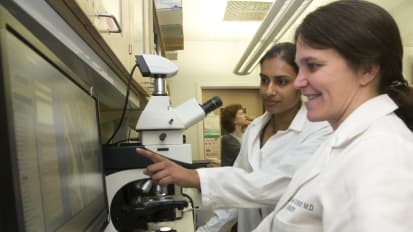 Video
Video
Identifying Hereditary Ovarian Cancer Risk: An Opportunity to Save Lives
Elizabeth Swisher, MD, Professor, provides an update on identifying the hereditary ovarian cancer risks since this has gone through a major transformation in the recent year.
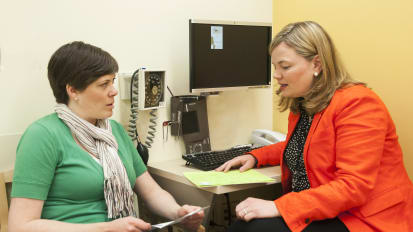 Video
Video
Encountering Ovarian Cancer in the Primary Care Setting
Kathryn Pennington, MD, describes the patterns of care in treating ovarian cancer, while identifying women who are at risk.
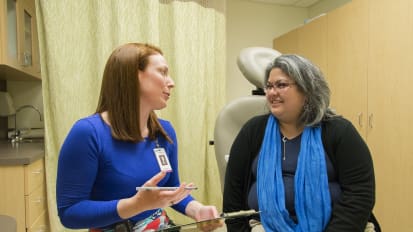 Video
Video
Urogynecology For the Primary Care Provider
Cindi Lewis, MD, provides an overview of how to manage patients with urinary incontinence, and learn conservative management of fecal and urinary incontinence.
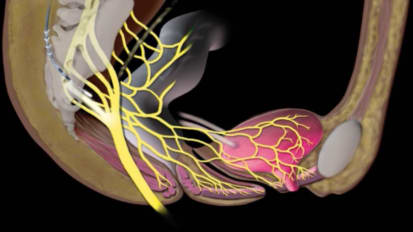 Video
Video
New Treatment Options for Accidental Bowel Loss
Michael Fialkow, MD, MPH, gives an overview of the epidemiology and risk factors in fecal incontinence, then discusses management options for this condition.
 Video
Video
HPV and Cervical Cancer: 25 Years from Discovery to Vaccine
Denise Galloway, PhD, shares the natural history of genital HPV infection and evidence for their role in cancers, mechanisms by which HPVs contribute to cancer, and the development of vaccine to prevent HPV infection.
Vaginal Preparation Prior to Cesarean Delivery: Obstetric Consensus Conference Post-operative infections are the most common cause of postpartum morbidity and significantly affect maternal well-being as well as hospital readmissions.Research & Publications

The UW Medicine Center for Women & Children: Discover Seattle's Best Kept Secret UW Medicine has some of the highest success rates in the region for the care of gynecologic cancer, high-risk obstetrics, infertility, family planning and pelvic health issues. Sex, Drugs & Cranberry Juice: What You Need to Know About UTIs Ann Stapleton, MD, shares her expertise in chronic UTIs in women in this patient information article. The UW Medicine gynecologic oncology team at University of Washington Medical Center consists of nationally recognized healthcare professionals with extensive clinical knowledge and surgical expertise to prevent and treat cancers. Gynecologic Cancer Care: Meet Our Team UW Medicine gynecologic oncology experts work with patients to prevent and treat complex gynecologic cancers. Pelvic Health Center Clinical Overview The UW Medicine Pelvic Health Center provides comprehensive and compassionate patient-centered care for routine and complex pelvic floor conditions. Meet Our Pelvic Health Center Team The UW Medicine Pelvic Health Center draws on experienced specialists across several medical and surgical domains so that each patient may benefit from multiple knowledgeable perspectives to determine the best course of care.




